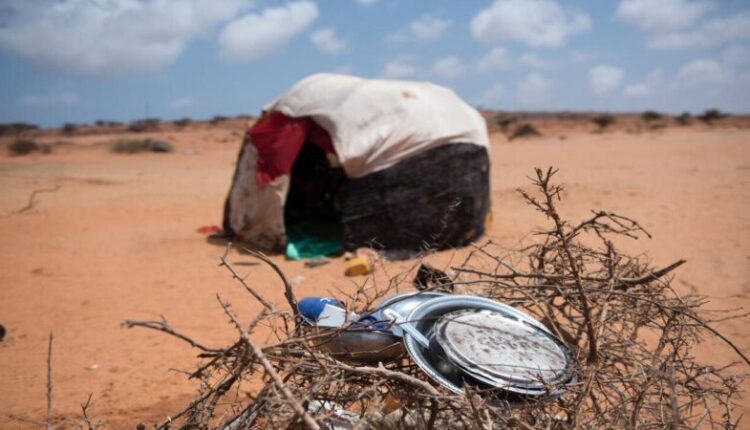Global warming will reduce world agricultural production by 30%
In the case of coffee, the area suitable for its cultivation could be reduced by 50% between now and 2050. And, in general, global agricultural production could decrease by 30% by 2050, according to recent research by Oxfam.
The State Fair Trade Coordinator has presented the report ‘Climate emergency, food production and Fair Trade’, in which it delves into the link between the current model of food production and consumption and global warming, and how it particularly dramatically affects the most impoverished populations and those dependent on agriculture. Gender inequality and its relationship with climate change, as well as aspects of climate financing.
World agricultural production
Among the main conclusions contained in the report, it stands out that the effects of global warming will reduce world agricultural production by 30% by 2050, if adequate measures are not adopted; and, in the case of maize, wheat and other crops, the decline could reach 80% in southern Africa.
“From production to consumption, international trade has a significant impact on the climate crisis,” said the executive director of the World Fair Trade Organization, Leida Rijnhout, who stressed that the world trade system “needs an urgent transition towards sustainable practices”, including the social dimension that is the other side of the coin of this crisis.
For his part, the person in charge of climate change at Fairtrade International, Juan Pablo Solís, has warned that it cannot be expected “that small agricultural organization, which already live in a situation of poverty and vulnerability and to which very low for their production, assume the entire cost of the ecological transition.
In addition, he recalled that “rich countries must fulfill the commitment of the Paris Agreements and reach 100,000 million dollars in financing to help the most vulnerable communities to combat a crisis that they have not caused.”
Adapt to climate change
According to calculations by the International Fund for Agricultural Development, developing countries “would need between 180,000 and 300,000 million dollars annually for actions to adapt to climate change.”
The report also concludes that climate change poses “a serious threat to food production.” Extreme events such as storms, hurricanes or droughts devastate crops, destroy agricultural infrastructure and cause desertification and reduction of arable land.
IFAD also warns that the production of maize, wheat, millet, peas and other products in eight southern African countries could fall by up to 80% without adequate political and climate measures.
In the case of coffee, the area suitable for its cultivation could be reduced by 50% between now and 2050. And, in general, global agricultural production could decrease by 30% by 2050, according to recent research by Oxfam.
On the other hand, the report highlights the “important” role of small agricultural organizations, which make up 95% of farms worldwide. These are the ones that produce a third of the food consumed in the world, and in developing countries they account for between 60% and 80% of the food consumed there.
Also Read: Homemade incubator in poultry business
Contact us: If farmers want to share information or experiences related to farming with us, then they can do this by calling us on the phone number 9599273766 or by writing an email to kisanofindia.mail@gmail.com or by sending your recording. Through Kisan of India, we will convey your message to the people, because we believe that if the farmers are advanced then the country is happy.
You can connect with Kisan of India on Facebook, Twitter, and Whatsapp and Subscribe to our YouTube channel.

